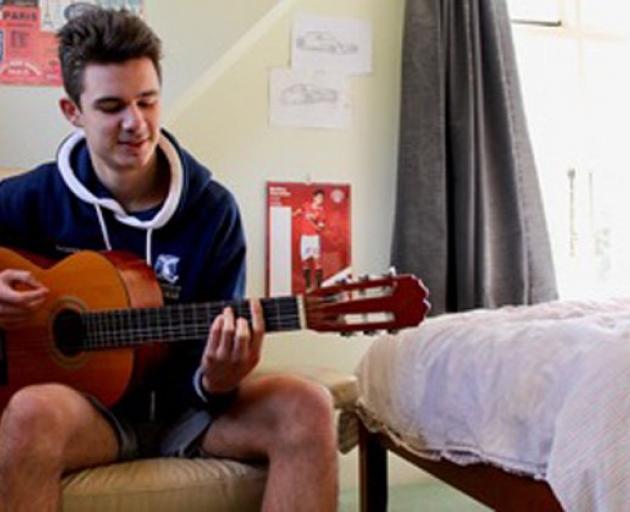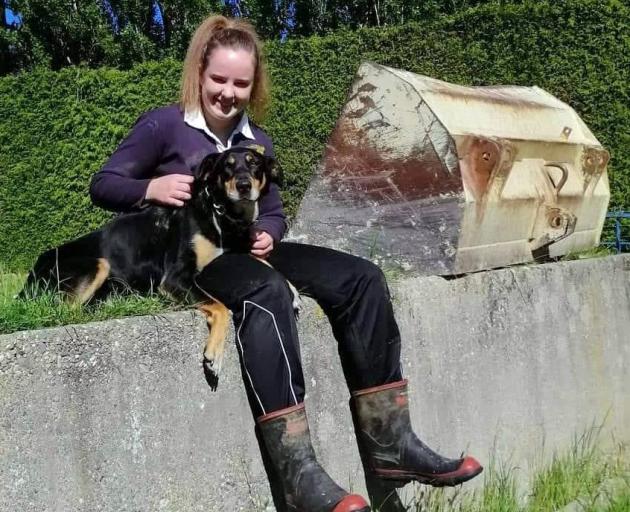
Former South Otago High School pupil now studying at the University of Otago
Being out of lockdown will be “bliss” because I am a first-year uni student.
I would love for everything to go straight back to normal, but I know this would be detrimental to the good work we have done while being home with our family and pets in lockdown.
Slow and steady would be my approach. Sorry guys and gals, forget the big campus parties for a while longer.
Just appreciate being able to catch up with your core group of friends again.
Keep practising the social distancing and appreciate the small things.
Be cautious. Maybe put limits in shopping malls, stagger meal times in halls of residence for a longer period, keep 2m gaps when in lines, and don’t forget to keep washing those hands whenever possible.
If we are coming out of lockdown on April 23, we should ease out of the restrictions, maybe tier it so we go to a Level 3 for a week and then 2.
Slow and steady.
Covid-19 is going to change our country, we will not be the same, there will be high unemployment, businesses will fold, the housing market will change, and tourism is going to struggle for a long period.
So let’s bond together after Covid-19. Support each other. Don't do too much too soon.
Jacinda, you should keep our borders tightly controlled for at least another couple of months, please.
And let’s all try to holiday in our own backyard, support New Zealand businesses and buy New Zealand-made items when we can.
This will all help in getting our economy up and running again.
Hopefully we can say goodbye, see ya later to Covid-19.

Former Dunstan High School pupil now studying at the University of Otago
In my opinion, continuing social distancing measures and reducing unnecessary travel outside of lockdown will be essential in maintaining control over Covid-19, and avoiding re-entering another lockdown situation.
This could still allow most businesses to reopen, but with the possibility of running at a lower capacity until the alert level decreases below 2.
As distance learning can be difficult for some students, it would also be beneficial for educational institutes to resume physical teaching as soon as safely possible, even if this involves a staggered return to classes.
For myself at university, where some of my lectures have up to 550 students in them, returning to physical lectures may not be possible for a while.
However, it would be good to see some of my labs and tutorials resume because they take place in smaller groups.
Similarly, a staggered return to domestic travel could involve moving from restricted movement within your DHB, to within the islands, then ultimately full domestic travel.
However, restrictions on air travel would likely need to continue for some time.
Post-lockdown will also be a vital time for the Government to reflect on how we could have been better prepared for such a situation.
Ultimately there will need to be a review of our response to our situation, and both local and central governments will need to work to establish a way for us to rebuild our economy in the short and long term.
It is important to remember that we cannot expect life to return to normal for a long time after this event, even if the virus is eradicated.

Former John McGlashan College pupil now studying at the University of Melbourne
The times we find ourselves in are unprecedented and bring with them unique challenges we must face as a society.
It’s easy for us all to focus on how this pandemic affects our own lives and in this we can fail to see how those around us are struggling too.
As we come out of lockdown and restrictions are gradually lifted, we have two options for our outlook on our circumstances.
We can compare our lives to what we had, or cherish what we have.
As a nation, we have for the most part avoided widespread community transmission and our response has meant we can still access essentials.
Many other countries in the world have been far less fortunate in these aspects and we can feel gratitude for this island nation we call home.
I think, simply put, the most important thing coming out of this lockdown is to be kind and hold empathy for those around us.
Fight isolation with solidarity, inconvenience with perspective, and hardship with kindness.
A Maori proverb comes to my mind that I think encompasses how we can come together to make it through as we start the long road towards normality — Na to rourou, na taku rourou ka ora ai te iwi — with your food basket and my food basket, the people will thrive.

Former Taieri College pupil now studying at the University of Otago
I believe after immediately coming out of lockdown, we should try not to immediately satisfy all our lockdown cravings by returning to our busy active lives because this may cause virus outbreaks to have a resurgence.
This potential issue will almost certainly be taken care of by the Government slowly reducing restrictions, and so it is crucial that we continue to follow these guidelines.
Once the virus is completely under control, there is no reason why we should try to change our lifestyles too dramatically.
We should still be able to socialise and enjoy life as we did before.
However, this is not to say that small changes should not be implemented into our lives.
The future will be unpredictable, and there will inevitable be changes to most of our lives.
Almost every industry has and will continue to suffer in the aftermath of the epidemic.
Because of this, many people will financially struggle for months and years to come as the economy recovers.
As such, we should all try to have more kindness, compassion and charity towards each other, which will help to alleviate our shared struggles.
We should also try to have greater preparedness.
We should all aim to be a little more self-sufficient, so that in future emergencies like this, there will be less stress on our services and everyone will be a little more calm and prepared.
I believe these actions would be the most appropriate response that we as individuals can take as a result of the Covid-19 pandemic.
It would help us all to get through these hard times and allow us to be prepared for future disasters.

Former Kaikorai Valley College pupil now studying at the University of Otago
There is no doubt that we are eager for the lockdown to end.
We are all hoping to return to normality as quickly as possible.
The question is, what do we need to do when the lockdown is lifted?
Do we go about our lives as though Covid-19 never entered it?
The answer is quite simple: we adjust.
Life as we know it will not have its balance restored the moment we can interact with other people again.
Nor will it return when schools and universities or businesses open again.
This period is when we will all try to rush back to how things used to be, without the fear of putting ourselves through the same mistakes.
For me, it is important to remember that if we have not fully eradicated the virus, it is still possible for it to be spread.
If we all run towards normality the moment we are given the chance, despite businesses who have had their sales disrupted, we could end up back in lockdown, because Covid-19 may not have been eradicated from New Zealand.
We need to adjust back to normality slowly, instead of rushing in to it.

Former Gore High School pupil now studying at Massey University
When this lockdown ends, the worst thing would be for everyone to rush out all at once and act like we didn’t just have a highly contagious and deadly epidemic.
Covid-19 is unlikely to be eradicated by the end of the lockdown, so people still need to be cautious.
What I think we need to do is to make an effort to continue to reduce the number of people we come in contact with, try to keep trips into crowded spaces to a minimum, and to stay local.
Also, I think it would help if people made an effort to record when and where they were in public so that if any cases break out, they can be traced easier.
Big outbreaks caused by parties and gatherings could send us back into lockdown and put other people at risk.
Although there would still be a small risk, meeting up with and checking on family and close friends is also important, especially people who have been alone during lockdown.
But keep it to small groups and keep up the washing of hands.
Anyone with symptoms should still remain in isolation.












